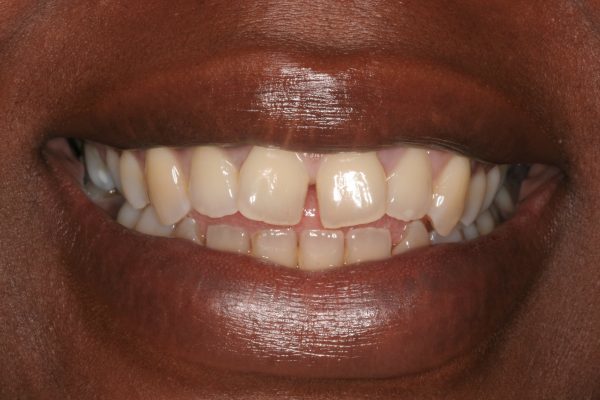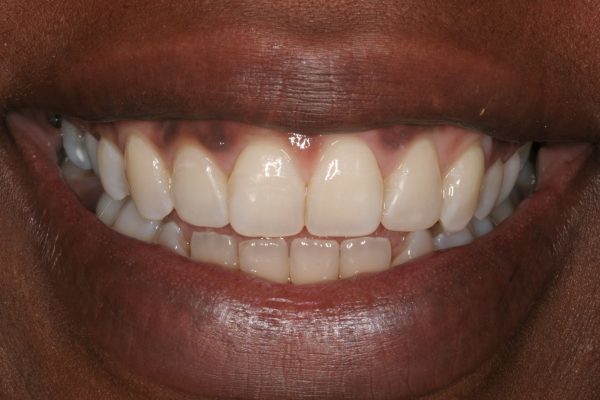 Minimal intervention was key for Chris Ibbott, so when he decided to go down the fixed ortho route with Wired Orthodontics, he found it benefitted both himself and his patients
Minimal intervention was key for Chris Ibbott, so when he decided to go down the fixed ortho route with Wired Orthodontics, he found it benefitted both himself and his patients
Cosmetic dentist Dr Chris Ibbott has always had a keen interest in aesthetic dentistry, particularly in smile enhancement and improvement using the most minimal techniques possible. However, he always had his reservations. ‘I found the idea of prepping large numbers of teeth for crowns or veneers a bit daunting and the level of intervention didn’t really sit right with me,’ he explains. ‘So when things started to change with the advent of mixed ortho and restorative treatments and there became more of a focus on minimal or less intervention then I knew this was the road for me.’ And so the journey started.
It all began when Chris was working at Dental Elegance with the pioneering UK dentist Dr Tif Qureshi. ‘Tif got me interested in the Inman Aligner side of things and I also starting using clear aligners, removable sectional appliances and fan screws. I used these appliances for a few years and got a lot of experience and nice results, but it got to a point where I saw the limitations of what I could do,’ says Chris. He was also referring a lot of patients out to deal with cosmetic issues that he couldn’t fix – misplaced or rotated canines, aesthetic concerns involving the back teeth and things that removable appliances weren’t suitable for. For this reason, Chris decided to go down the fixed ortho route for his patients.
Learning curve
It was a friend of Chris from Manchester who had trained with Ian Hutchinson’s Wired Orthodontics which encouraged him to go down that road. ‘He was extremely enthusiastic about the course and support, so I decided to take the leap,’ he says.
In the last five years, how have things changed for Chris? ‘I would say I feel a lot more comfortable providing fixed appliances now,’ he answers. ‘I have had quite a steep learning curve, so I’ve got a much greater understanding of what I can realistically achieve.’ Chris also states that he has a better idea of how long realistically things are going to take as well as some of the pitfalls. ‘I’m better equipped to choose certain techniques and appliances to fix certain problems and my treatment times are probably a little bit quicker too,’ he adds.
 The amount of ortho Chris undertakes has increased to the point that its the majority of what he does. ‘I do a combination of fixed labial and lingual but predominantly labial and I use a variety of different brackets depending on the case. This includes straight up ortho, some proper ortho-restorative cases and a lot of cosmetic bonding for aesthetics at the end of treatment. In respect of lingual cases I started more just with anterior alignment cases, bonding 3-3 whereas now I’d expand that a bit more. I don’t carry out full-mouth cases but certainly 5-5 and 6-6 cases and I feel comfortable dealing with malocclusions that involve back teeth rather than just anterior alignment.’
The amount of ortho Chris undertakes has increased to the point that its the majority of what he does. ‘I do a combination of fixed labial and lingual but predominantly labial and I use a variety of different brackets depending on the case. This includes straight up ortho, some proper ortho-restorative cases and a lot of cosmetic bonding for aesthetics at the end of treatment. In respect of lingual cases I started more just with anterior alignment cases, bonding 3-3 whereas now I’d expand that a bit more. I don’t carry out full-mouth cases but certainly 5-5 and 6-6 cases and I feel comfortable dealing with malocclusions that involve back teeth rather than just anterior alignment.’
With his level of experience Chris does do some direct bonding and while he likes the control it offers, he does find it very time consuming and uncomfortable for the patient. ‘While I find with the work I get back from Wired, the brackets are where I want them to be and I don’t find I need to reposition a bracket very often,’ he explains. ‘The treatment progresses predictably with a positive result. It works well for me to have a close relationship with a lab with whom I can communicate and who follow my prescription. I also get the added bonus of Ian Hutchinson reviewing my treatment plan.
Words of wisdom
With all this experience under his belt does Chris have any advice for anyone getting started in ortho? ‘I would say start at a level that you are comfortable with. Don’t throw yourself too much into the deep end – you don’t want to frighten yourself and get into a situation which you can’t deal with,’ he responds. ‘It’s not fair on you and not fair on the patient. I think it’s essential to learn the fundamentals of orthodontics and understand the mechanics of how things move, why they move and what you’re doing biologically.’ Ultimately, in Chris’s view, help is crucial. ‘I think a mentor is very important and extremely helpful. Having someone you can turn to who is able to offer you a close level of support makes all the difference’.
For more information on courses and mentoring from Ian Hutchinson and Wired Orthodontics call: 08456 046 737 or email: [email protected]


